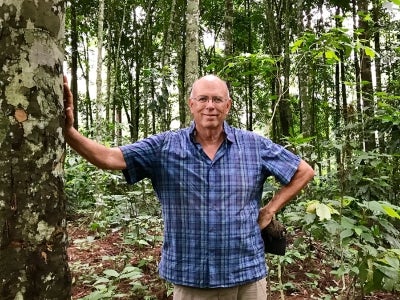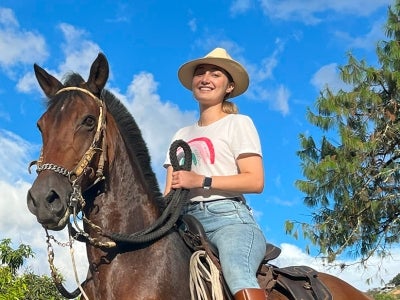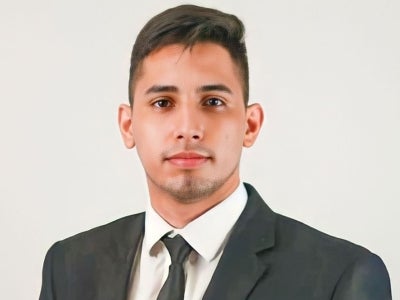
Photo courtesy of Daniela Macaya
Daniela Macaya is an environmental studies major, children’s book author, and ocean artist from Costa Rica who is completing a summer internship at the Global Environment Facility. In an interview during the GEF Assembly, she shared what drives her strong sense of purpose and offered a message to today’s political and business leaders.
What are you currently focused on?
My background is in environmental art activism, ocean education, community engagement, and biodiversity conservation. I am currently pursuing a bachelor's degree in environmental studies at Yale University, with a concentration in biodiversity and conservation. This summer, I have been working as an intern at the Global Environment Facility, where I provide support to the CEO and work on youth engagement initiatives. It is exciting to be at the GEF Assembly in Vancouver as a Youth Focal Point. I am also very much looking forward to representing Yale as a delegate to the COP28 climate summit in Dubai later this year as part of the Yale Student Environmental Coalition.
How did you become interested in the environment?
Born and raised in Costa Rica, I have had the privilege of growing up in a highly biodiverse landscape, with a deep appreciation for the natural world and my country’s progressive conservation policies. However, as I grew older, I became aware of alarming trends such as dwindling turtle nesting (or “arribadas”) on our beaches, plastic waste on our shores, and the consequences of climate change on the ocean. These ripple effects in Costa Rica made me aware of the need to look and work across borders, and helped me recognize that we are in a global environmental crisis that demands urgent attention.

Photo courtesy of Daniela Macaya
How does your art relate to this interest?
Art has always been my outlet and megaphone, and as my environmental activism grew I found ways to fuse the two. When I was 16, I started designing, painting, and selling custom hand-painted steel water bottles with images of nature, as a way to promote reusable alternatives and reduce single-use plastic. Part of the proceeds went to Friends of Cocos Island Foundation, a Costa Rican organization devoted to conserving Cocos Island and its surrounding ecosystems.
I also founded and led a national storm drain painting competition in Costa Rica. This contest encouraged children and young people to paint storm drains with images of marine life, raising awareness that these drains are the ocean’s starting point and a source of its pollution.
You have also written and illustrated children’s books. What was your inspiration for this?
During the pandemic, I wrote Desechada about the journey of a plastic bag. It was published by UNICEF and Editorial Universidad Estatal a Distancia in 2022, and is now available in 62 public libraries. It has also been published as an ebook in English as Throw It Away. This has been a lot of fun as I have taken part in school book readings, conducted workshops in libraries, and engaged with people of all ages about environmental stewardship and sustainability.
If you could say one thing to today’s political or business leaders, what would it be?
Changing the trajectory of the global environment is a complex challenge that requires creative and holistic solutions. No one person and no single entity possesses all the answers. To create different outcomes we need to support and foster collaboration between disciplines and fields, connecting scientific experts, artists, community leaders, young people, businesses, civil society, and others. You are the leaders of today, and you must also pave the way for the leaders of tomorrow. Think outside the box - in this jigsaw puzzle of challenges, the missing piece(s) might just be the spark of transformation.


